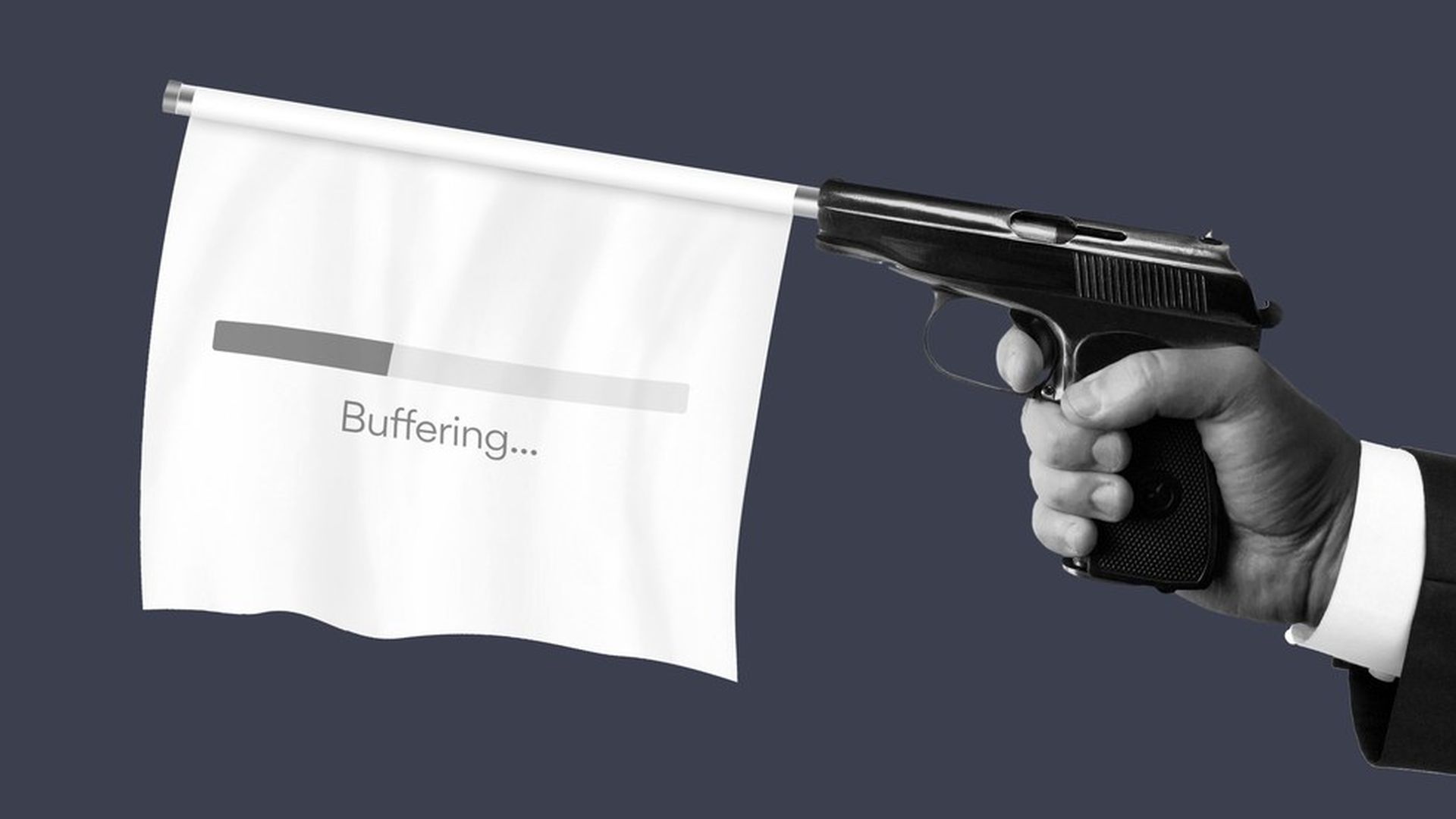The plot to kill net neutrality
Add Axios as your preferred source to
see more of our stories on Google.

Illustration: Greg Ruben / Axios
The FCC's rules banning internet providers from favoring some content on their network over other content — beloved by tech companies and despised by telecom carriers — might not last much longer.
Ever since the FCC adopted the rules two years ago, internet service providers like Comcast, Verizon and AT&T, along with Congressional Republicans, have pledged to dismantle or drastically weaken them. Now with Trump in charge, they can do it.
It's a two-front war: The dismantling effort could happen in Congress, at the FCC, or both. New FCC Chairman Ajit Pai, the most senior Republican on the panel and a vocal critic of the rules, can start the reversal process on day one. But that doesn't mean he will. He may opt to let Republicans in Congress resolve the issue with legislation. And both lawmakers and commissioners will be watching what the courts do on the issue.
Here's how it could play out, according to experts and key lawmakers.
At the FCC:
- Pai can simply decide not to enforce the rules on the books. But stopping there doesn't do anything to prevent Democrats from enforcing them again after the next leadership change. Republicans want to eradicate the current rules once and for all. (Pai may agree with the general idea of an open internet, but he's adamant that treating broadband like a utility isn't the way to do it.)
- Pai could start a formal process to unwind the rules more permanently, inviting a repeat of the millions of comments that came in from the public the last time the FCC had this debate (Hello, Jon Oliver). The public could also comment on whether to reverse the decision to reclassify broadband service under the law, which gave the FCC broader authority to regulate ISPs.
- He could use a procedural tactic to scale back the commission's expanded authority more quickly without seeking public comment. He would still need to get comments on whether to keep the rules specifically banning blocking, throttling and fast lanes.
Yes, but: Keep in mind that in any formal proceeding, the commission would have to legally justify why it was reversing its own rules — a tough task considering a federal court last year ruled to uphold them.
A caveat: A person familiar with discussions at the agency on this issue says they remain in flux.
In Congress:
- Lawmakers could bring back a proposal from 2015 that preserves some elements of the FCC rules but throws out others. It would ban throttling, blocking and fast lanes while limiting the rest of the commission's authority over broadband service. The chairs of both the Senate and House committees that oversee telecom issues signed on to that bill two years ago. Oregon Republican Greg Walden, the new chair of the House's Energy and Commerce Committee, told Axios the compromise was "absolutely" still on the table. His Senate counterpart, John Thune, has said he'd like to revive the deal.
- Some Republicans in Congress — including the incoming chair of a key House subcommittee on this issue — have said there should not be any net neutrality regulations at all. They could push for a bill that would make it clear providers could block or throttle content or offer paid prioritization.
But wait: Congress might not want to act until the FCC wipes the slate clean on the rules. That could push off Congressional action into the later part of 2017. And the closer they get to the midterm elections in 2018, the harder it will be to make a deal on pretty much any policy.
Regardless of the process that will soon play out, here's how the story ends:


